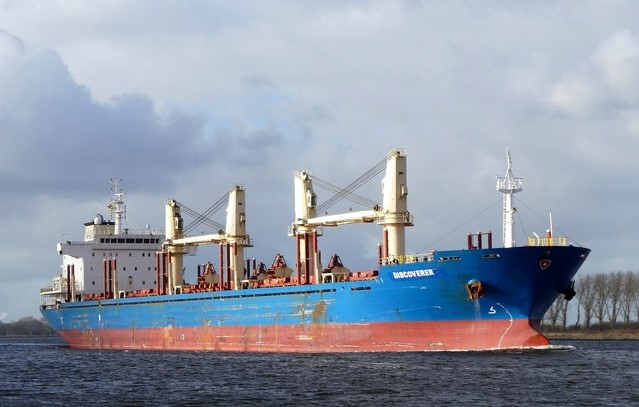
As shipping examines multiple scenarios to limit its GHG (greenhouse gas) emissions, vessel speed reduction is a low hanging fruit in shipping’s decarbonization journey. This is based on the observation that inefficiencies caused by some key choke points in global maritime trade – such as congestion and waiting times at ports – contribute heavily to emissions in the shipping sector. Ships consume much less energy as they reduce speed, so adjustments during the voyage can directly reduce GHG emissions.
Theoretically, this sounds simple, but implementation of speed reductions is often hindered by unaligned incentives between charterers and ship owners. Hence, just in time (JIT) arrival is compromised in favor of rush and wait at the anchorage.
How could this be resolved? In a new study published in the Transportation Research Part D journal, Shipping Economics Professors Roar Adland and Gabriel Fuentes propose several ideas to overcome hurdles currently facing the implementation of speed reductions.
Conventionally, the concept of speed reduction for operational efficiency has only been analyzed in the context of ports, being the end points of ships’ voyages. But as Adland and Fuentes show that unproductive waiting time may also occur at intermediate points during a voyage, for instance bunkering stops and at maritime choke points such as canals and straits.
Such waiting times could be caused by factors such as dynamic demand, lack of resources to serve a vessel, weather closures and restrictions on throughput. In this regard, improving operational efficiencies at maritime choke points need to be prioritized as they also present a valuable opportunity to cut emissions.
In fact, some maritime choke points are so critical to global seaborne trade that they are as important to consider as very large ports and key trade lanes.
This is the main thrust of Adland and Fuentes’ study, arguing that emission reduction in shipping could be best achieved at intermediate points (canals), as many of the contractual barriers that hinder operational efficiencies at ports do not apply.
The study uses the Panama Canal as the case study for a number of reasons. First, the canal has a huge emission reduction potential given that approximately 13,000 vessels transit the Canal each year, according to the Panama Canal Authority (PCA).
Secondly, the Panama Canal has one of the most flexible scheduling system, with several options to pre-book a vessel transit based on commercial criteria. The idea is that the canal could leverage on its scheduling flexibility to assign slots based on vessels’ GHG emissions.
What this means is that the Canal’s scheduling policies for transits do not just focus on a chronological queue of vessel arrivals but also the Canal Authority’s discretion, involving pre-booked slots and rules determining priority by vessel type or a customer ranking.
Thus, some changes to the Panama Canal scheduling rules could help to implement speed reduction measures, effectively assisting to cut carbon emissions. To derive the canal emissions, the study used data for 36,112 transits (98.1% of the reported transits) for the period between 2019- 2021.
In total, the Panama Canal’s total operations emitted approximately 101.9 million tons of CO2 equivalent, of which 97 percent are emissions of CO2 and rest of methane (CH4) and nitrous oxide (N2O).
Interestingly, emissions were slightly higher on the voyage leg before canal transit. This suggests that lower waiting time can reduce emissions at canal anchorages, which are close to populated areas, thus reducing health hazards such as particulate matter and NOx.
In terms of speed reduction measures, it would be very difficult for PCA to implement changes to all vessel transits. However, the policy can be assigned to a small number of vessels, especially focusing on vessels trading on specific routes that have the highest impact on emissions.
For instance, the study found out that the container routes from Asia to the East Coast of the U.S. dominate the highest-emitting routes. If based on individual ports, an initial strategy could focus on Busan Port and the Port of Houston, covering four and two of the top routes, respectively.
“The idea of per route focus is inspired in the proposal of green corridors as presented by the Getting to Zero Coalition. Green Corridors are specific trade routes between major port hubs where zero-emission solutions have been demonstrated and are supported. We recognize that Panama Canal being part of a green corridor could have a similar effect in terms of leveraging favorable conditions for accelerated action and creating a spill-over effect to other maritime choke points and routes,” recommended Adland and Fuentes.
Meanwhile, the study estimated that Panama Canal could have removed up to 1.8 million tons of CO2 equivalent per year for the period of 2019 to 2021, if targeted speed reductions was implemented in scheduling transits of some incoming vessels.
Follow us on Facebook/ twitter














